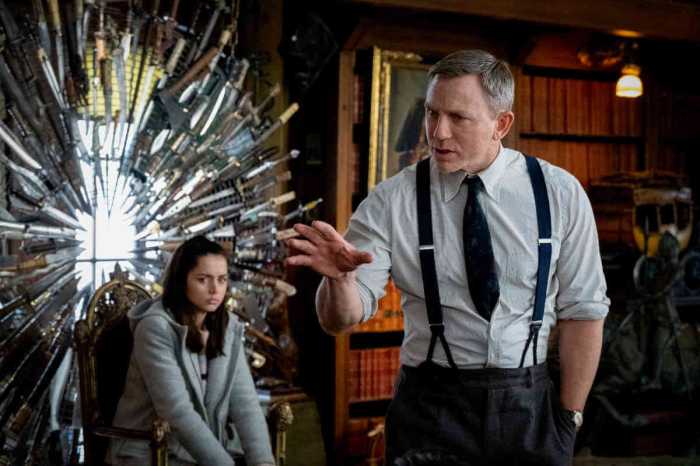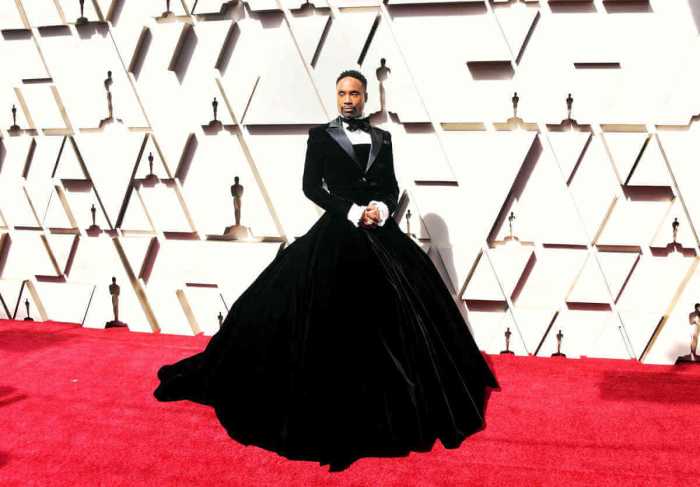Lakeith Stanfield and Tessa Thompson in Boots Riley’s “Sorry to Bother You.” |ANNAPURNA PICTURES
Politics and silliness are supposed to be enemies. In fact, the way the alt-right rose by its hiding its true hatefulness beneath a veneer of irony and politically incorrect humor has soured some people on the whole idea of comedy.
Boots Riley’s “Sorry To Bother You” reminds us that satire can bring politics and silliness together with truly radical results. The debut film by the rapper who masterminded the Coup, who recorded six albums from 1993 to 2012, it suggests a shotgun marriage among Mike Judge, Spike Lee, Michel Gondry (who gets an explicit homage onscreen in the form of a video directed by “Michel Dongry”), and the FX TV show “Atlanta.”
Boots Riley’s careening satire about race and class in America
Riley’s lyrics for the Coup took continual aim at corporate power (“5 Million Ways To Kill A CEO”), gentrification (“Fat Cats And Bigga Fish”), faux liberals (“You Are Not A Riot”), and double standards in race and class (“Your Parents’ Cocaine,” which gets played during this film) while having the sarcastic wit to name two of the Coup’s albums “Genocide & Juice” (riffing on Snoop Dogg’s hit “Gin & Juice”) and “Steal This Album.” Unfortunately, the group had the bad luck to sign to three record labels in a row that went out of business, and they’re better known for the fact that the original artwork for their 2001 album “Party Music” predicted the World Trade Center’s destruction and had to be changed quickly than for anything approaching mainstream success.
Cassius (Lakeith Stanfield) starts off owing four months’ rent. His uncle and landlord (Terry Crews) is about to evict him and his girlfriend Detroit (Tessa Thompson), who has a collection of hilarious earrings. They live in a version of Oakland whose differences from our world seem minimal at first but grow as the plot takes so many twists that the film’s press release asks critics not to reveal them.
Cassius gets hired at a telemarketing company and starts to rise there when he develops a “white voice” (he is dubbed here by David Cross, and another black character’s “white voice” is dubbed by Patton Oswalt.) Meanwhile, the film lays out the dystopian reality of the world around its characters: the activist group Left Eye is fighting against the corporate power of Worry Free Living, which has reintroduced slavery as a form of temp work. As Cassius climbs the corporate ladder, attracting the attention of a sleazy CEO (Armie Hammer), his friends start a union and go on strike at that exact moment. He is forced to choose which side he’s on.
“Sorry To Bother You” plows through a long list of topical subjects: the necessity of unions, the fact that well-paying full-time labor has mostly dried up in the US, racist expectations that require constant code switching from middle-class blacks. Its view of the media is straight out of “Idiocracy” with a dash of Paul Verhoeven, especially in positing a wildly popular TV show called “I Got the Shit Kicked Out of Me.” But it ultimately comes off as a psychedelic lark as well. Spike Lee can get quite strange both in visual and narrative terms, but there’s a preachy and heavy-handed tendency to his films (his 2015 “Chi-raq” literally let a priest sermonize for an uninterrupted 10-minute stretch). Riley is far more interested in spinning his ideas into further weirdness.
As Cassius gets wealthier, his apartment transforms, in a single shot that must be heavily assisted by CGI but seems quite virtuoso nevertheless. This is a film about a man torn between materialism and a nascent political conscience. If it’s obvious from what I’ve written about Riley’s background that Cassius will choose the latter, “Sorry To Bother You” still makes time for silliness, like a character whose last name is “DeBauchery” (pronounced “devo-cherry”) and is willing to admit that political art can often be a ludicrous failure (like Detroit’s performance art piece where audience members throw balloons filled with sheep blood at her near-nude body as she recites dialogue from the film “The Last Dragon”).
Hammer is introduced late in the film, snorting a foot-long line of coke, after being glimpsed via TV clips, but he clearly had a great time chewing the scenery. “Sorry To Bother You” spends its last third twisting itself into one odd metaphor after another about corporate power and the damage America’s classism and racism wreaks. If the film starts to lose its footing in the final 20 minutes and goes from being laser-guided and consistently entertaining to gratuitously weird, it still feels far more together than superficially similar cult films like Richard Kelly’s “The Southland Tales.” Alex Cox’s “Repo Man” became a hit among ‘80s punks for offering the same basic sensibility and politics. Here’s the equivalent for a generation whose dominant genre is hip-hop.
SORRY TO BOTHER YOU | Directed by Boots Riley | Annapurna Pictures | Opens Jul. 5 | tickets.sorrytobotheryou.movie



































